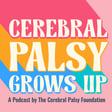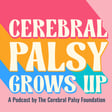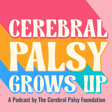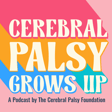
Episode 8: Chelsea Bear
Chelsea Bear is a social media influencer who shares Cerebral Palsy through her lens. Chelsea was born and raised in South Florida. When she was eight months old, her mom began to realize she wasn’t sitting up like the other babies in her mommy and me class, which led to years of doctor visits, MRI’s, cat scans, X-Rays and more. At the age of three, Chelsea was officially diagnosed with Cerebral Palsy.
After graduating high school in 2011, Chelsea attended Florida Gulf Coast University where she earned a bachelor’s degree in communication and public relations. She led a thriving career in public relations for 7+ years, and in late 2021 she took the leap to pursue content creation and disability advocacy full-time.
Today, Chelsea uses social media to share her first-hand story of living with Cerebral Palsy.
Cerebral Palsy Foundation on Instagram: @yourcpf
CPGU on Instagram: @cerebralpalsygrowsup
Follow Chelsea: @realchelseabear
Credits
Host: Alexa Orban
Producers: Katy Gaastra, Kyle Khachadurian
Executive Producers: Ashley Harris Whaley, Rachel Byrne
Graphics: Briana Raucci



